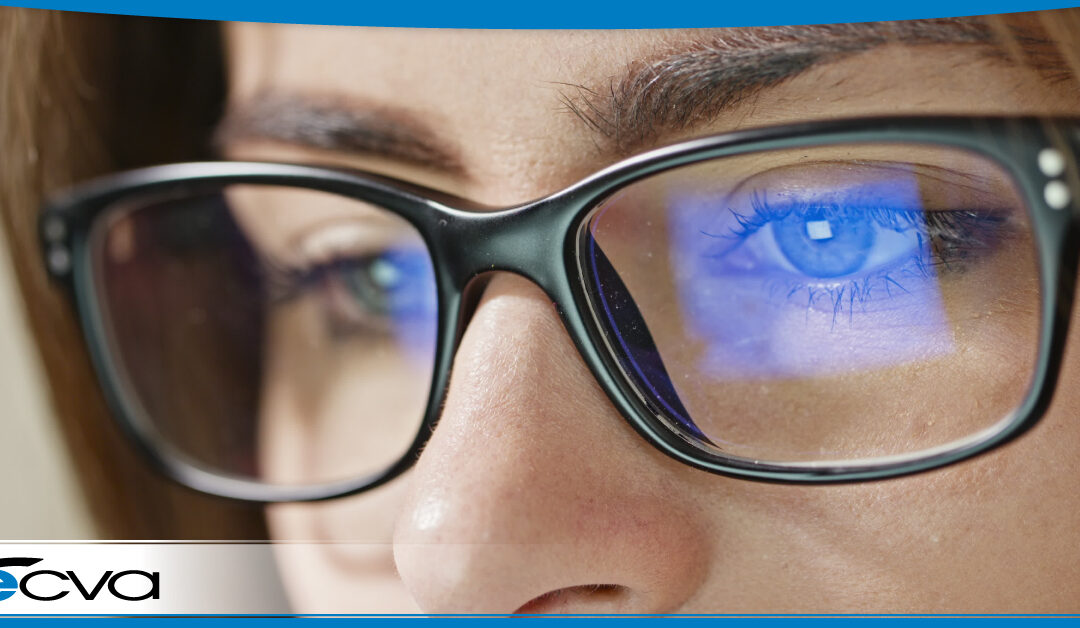Most people have heard that they should reduce their exposure to blue light. But it’s common to have questions, including why blue light could be harmful and how it affects the eye. If you’d like to find out more about blue light, here’s a look at what it is and how it could impact your eyes.
The Light Spectrum
Sunlight is a natural light source that appears white. However, it’s made up of a full-color spectrum, including red, orange, yellow, green, blue, indigo, and violet light. That’s what allows rainbows to happen. Water droplets in the air separate the colors visually, creating the rainbow look.
Different colors of light have different wavelengths. Red rays have a longer wavelength, causing them to have less energy. In comparison, blue rays’ wavelengths are shorter and have more energy.
Where Blue Light Comes From
Blue light is produced by a range of sources. The sun is a natural source of blue light, for one. However, there are also numerous sources of artificial blue light, including:
- Smartphones
- Tablets
- Computer screens
- Televisions
- LED lightbulbs
- CFL lightbulbs
- Fluorescent lightbulbs
Blue light isn’t inherently bad. In fact, it can provide some benefits, including boosting alertness and supporting the body’s natural wake cycle.
While the sun is technically the largest source of blue light, there are concerns regarding artificial blue light exposure. Mainly, this is because people tend to be close to the sources and spend a substantial amount of time focused on them.
How Blue Light Affects Our Eyes
When blue light reaches your eyes, nearly all of it passes through the cornea and lens, allowing it to reach the retina. Practically none of it is blocked or reflected, causing it to be absorbed mostly. While our eyes are designed to deal with blue light, artificial sources mean we are taking in far more than we would from natural sources alone. And prolonged exposure could have negative impacts.
One of the most common effects is digital eye strain. When you look at a screen, you tend to blink less, causing your eyes to fatigue and get dry. Additionally, exposure to artificial blue light may harm circadian rhythms, especially when it occurs late at night.
Some studies suggest that blue light may actually harm the retina. It could be triggering chemical reactions in the eye that have a toxic effect on retina cells. When that occurs, visual acuity could be damaged over time. There may also be an increased risk of certain conditions, including age-related macular degeneration.
Protecting Your Eyes from Blue Light
While getting some exposure to blue light is a good thing, it’s wise to take precautions against prolonged exposure, especially from artificial sources. Begin by limiting your screen time when possible, and take breaks when you use devices to rest your eyes.
Additionally, consider purchasing screen filters. These can decrease your exposure to blue light by stopping some of the blue light from passing through. Yellow-tinted computer glasses and anti-reflective lens coatings may also help block blue light.
If you would like to learn more about the effects of blue light and what you can do to keep your eyes healthy, your eye doctor can help. Schedule an appointment at your nearest ECVA clinic today. Our skilled team will listen to your concerns and provide you with guidance, empowering you to make sure your eyes remain as comfortable and healthy.


